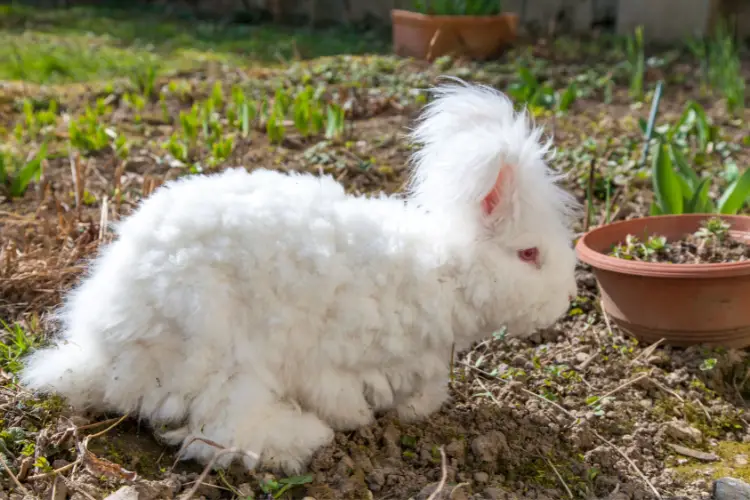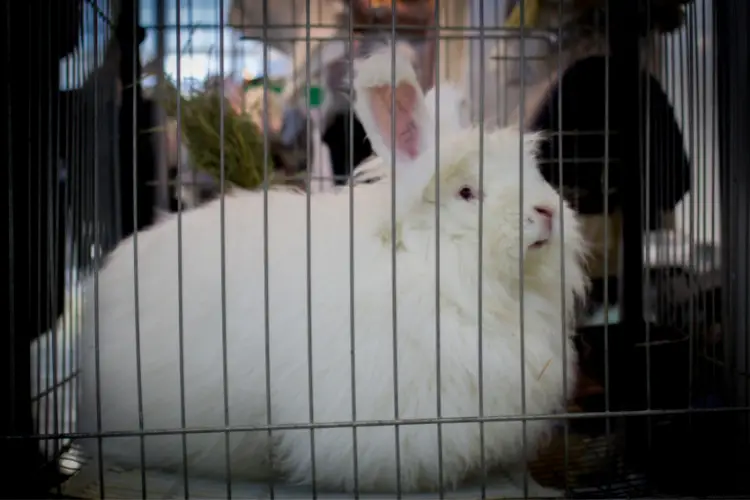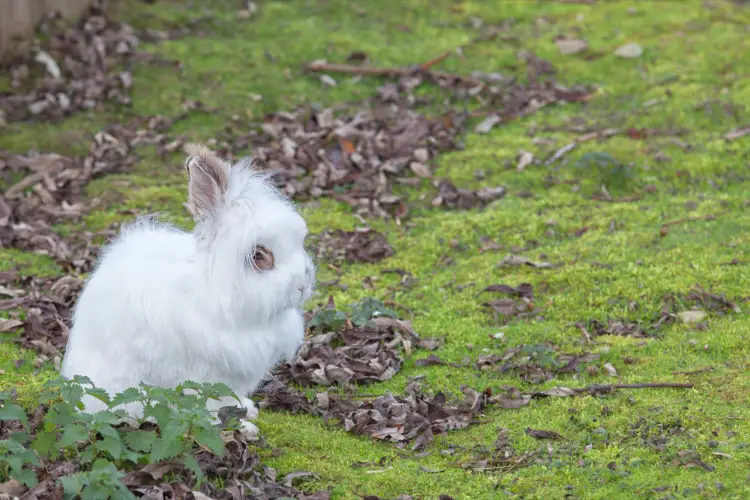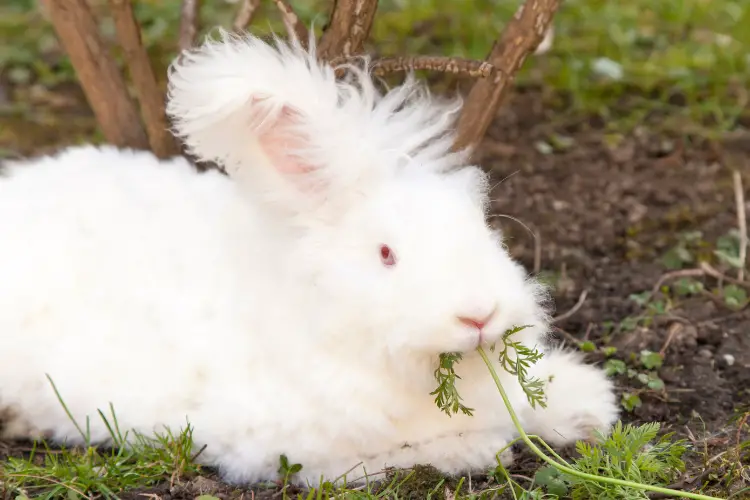Angora rabbits are beloved for their soft, luxurious wool, making them a popular choice among fiber enthusiasts and pet owners alike.
However, before committing to owning an Angora rabbit, it’s essential to understand their expected lifespan and factors that can influence it.
In this blog post guide, we’ll explore the average lifespan of Angora rabbits, factors affecting their longevity, and tips to help your furry friend live a long and healthy life.
What is the Average Lifespan of an Angora Rabbit?
The average lifespan of an Angora rabbit ranges from 5 to 10 years, with proper care and ideal living conditions. However, it’s important to note that several factors can influence an individual rabbit’s lifespan, including genetics, diet, housing, and overall care.
While some Angora rabbits may live longer than the average range, others may have a shorter lifespan due to various circumstances. Understanding these factors can help you provide the best possible care for your Angora rabbit and potentially extend their lifespan.

Factors Affecting Angora Rabbit Lifespan
Several factors can influence the lifespan of an Angora rabbit. Let’s explore some of the most significant ones:
1. Breed and Genetics
Different breeds of Angora rabbits may have varying lifespans. For example, the English Angora breed is known for its relatively long lifespan, often reaching 8 to 10 years, while the German Angora breed may have a slightly shorter lifespan of 5 to 8 years.
Additionally, genetics play a crucial role in determining an individual rabbit’s lifespan. Rabbits from reputable breeders who prioritize health and longevity may have a greater chance of living longer lives.
2. Diet and Nutrition
A well-balanced and nutrient-rich diet is essential for the overall health and longevity of Angora rabbits. A diet consisting of high-quality hay, fresh vegetables, and a small amount of pellets can provide the necessary nutrients for optimal growth and development.
Overfeeding or providing an improper diet can lead to obesity, digestive issues, and other health problems, which can ultimately shorten an Angora rabbit’s lifespan.
3. Housing and Living Conditions
Angora rabbits require a clean, spacious, and well-ventilated living environment. Proper housing not only ensures their physical comfort but also plays a vital role in their mental well-being, which can significantly impact their lifespan.
Factors such as temperature, humidity, and air quality can affect an Angora rabbit’s health and should be monitored closely. Additionally, providing adequate space for exercise and enrichment can help prevent obesity, boredom, and stress, which can contribute to a longer lifespan.
4. Veterinary Care and Health Maintenance
Regular veterinary check-ups and preventive care are crucial for detecting and addressing potential health issues early on. Angora rabbits are susceptible to various conditions, including dental problems, respiratory issues, and parasites, which can negatively impact their lifespan if left untreated.
Proper grooming and wool maintenance are also essential for Angora rabbits, as matted or unkempt wool can lead to skin irritations, infections, and other health problems.
5. Stress and Environmental Factors
Angora rabbits are sensitive creatures, and high levels of stress can have a detrimental effect on their health and lifespan. Stress can be caused by factors such as loud noises, changes in routine, or improper handling.
Additionally, environmental factors like temperature fluctuations, drafts, and poor air quality can contribute to stress and potential health issues, ultimately impacting an Angora rabbit’s longevity.

Tips for Promoting a Longer Lifespan for Your Angora Rabbit
To help your Angora rabbit live a long and healthy life, consider the following tips:
- Provide a high-quality, balanced diet: Offer a diet rich in hay, fresh vegetables, and a small amount of pellets tailored to your rabbit’s age and specific needs.
- Ensure proper housing and living conditions: Provide a spacious, clean, and well-ventilated enclosure with ample space for exercise and enrichment.
- Maintain regular veterinary care: Schedule routine check-ups and follow your veterinarian’s recommendations for preventive care, such as vaccinations and parasite control.
- Groom and maintain wool properly: Brush and groom your Angora rabbit regularly to prevent matting and skin issues, and seek professional assistance if needed.
- Minimize stress and provide enrichment: Create a calm and stress-free environment, and offer toys, hides, and other enrichment activities to keep your rabbit mentally stimulated and engaged.
- Monitor for signs of illness or distress: Be observant and alert for any changes in your rabbit’s behavior, appetite, or appearance, and seek veterinary attention promptly if concerns arise.

Angora Rabbit Lifespan by Breed: A Comparative Table
To help you better understand the potential lifespan variations among different Angora rabbit breeds, here’s a comparative table:
| Breed | Average Lifespan |
|---|---|
| English Angora | 8 – 10 years |
| German Angora | 5 – 8 years |
| French Angora | 6 – 9 years |
| Giant Angora | 7 – 10 years |
| Satin Angora | 6 – 8 years |
It’s important to note that these are general guidelines, and individual rabbits may live shorter or longer lives based on various factors mentioned earlier in this article.
Conclusion
Angora rabbits can make wonderful companions, but understanding their expected lifespan and the factors that influence it is crucial for providing them with the best possible care. While the average lifespan of an Angora rabbit ranges from 5 to 10 years, proper diet, housing, veterinary care, and minimizing stress can contribute to a longer and healthier life for your furry friend.
By being an informed and responsible pet owner, you can create an environment that promotes your Angora rabbit’s well-being and potentially extends their lifespan beyond the average range. Remember, every rabbit is unique, and with love, patience, and diligent care, you can enjoy many cherished years with your beloved Angora companion.

